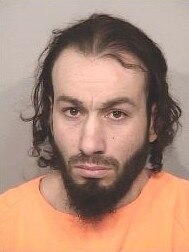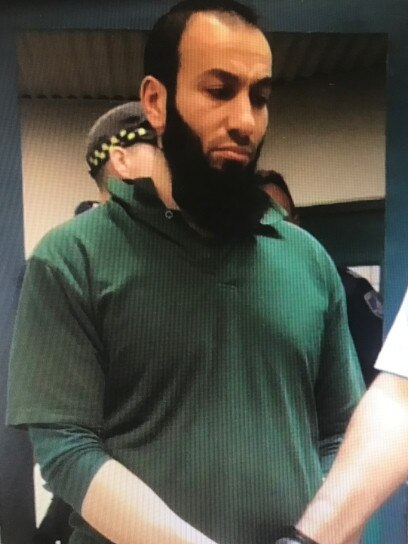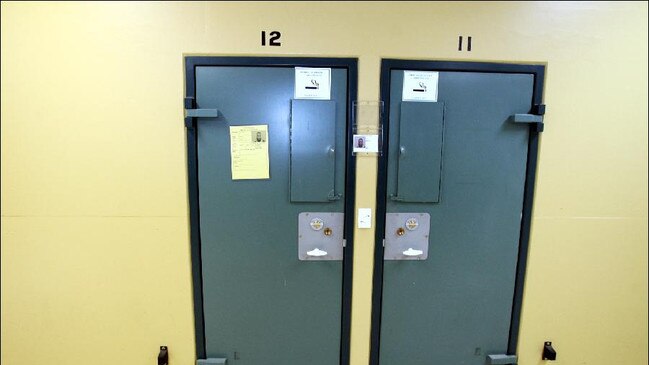Bassam Hamzy: Infamous prisoner appeals court ruling to speak Arabic in prison
The state's most notorious prisoner, Bassam Hamzy, just lost a court battle to speak in Arabic in jail, but is launching an appeal, saying he has fewer rights than people in Guantánamo Bay.
True Crime
Don't miss out on the headlines from True Crime. Followed categories will be added to My News.
Convict mastermind Bassam Hamzy will appeal after a court refused to grant him the right to speak Arabic and chat unmonitored with lawyers who have not undergone criminal background checks.
Hamzy, who was locked up in 2001 for murder and a slew of other violent crimes, is designated an extreme high risk restricted inmate at Goulburn Supermax.
But the former Brothers 4 Life kingpin considers himself a sharp legal mind and often battles the NSW Commissioner of Corrective Services – who represents the prison system – in court.


MORE NEWS
HIV wait after man ‘bit, spat blood’ at hospital staff
V'landys’ legal showdown over horse slaughter exposé
‘Tonne of ice’ allegedly found inside yacht off NSW coast
He recently asked the NSW Supreme Court to overturn the requirement for his legal representatives to be approved by the commissioner. He also took issue with them having to undergo yearly criminal background checks.
Hamzy also wanted access to the audiovisual link system to speak with his lawyers and wanted his calls to go unmonitored to respect his privacy.
The convicted killer’s high-profile barrister, Michael Finnane QC, also argued Hamzy should be able to communicate with his visitors in Arabic rather than English under the Racial Discrimination Act.

"The right to speak in a person's language is one exercised by all Australian citizens who wish to do so,” Mr Finnane QC, a former District Court judge, previously said.
"He cannot communicate in the language of his birth with members of his family, nor can they with him," he said.
But Justice Geoffrey Bellew threw all Hamzy’s matters out on Wednesday.
In part the judge concluded Hamzy did not have the right to express himself in Arabic in all circumstances, including as a prisoner.
His privately-funded legal team is appealing the decision, The Daily Telegraph understands.
His solicitor, Zali Burrows, said Hamzy is “disappointed in the decision” and says “inmates in Guantánamo Bay have more rights than inmates in a NSW jail”.
The gangland-figure, in court documents, expressed frustration at being denied access to the audiovisual link.
“I believe that I am the only inmate (in NSW) that has been denied access to AVL facilities, notwithstanding inmates on charges of murder, terrorism drug dealing and the like is permitted to use AVL facilities to conference with their lawyers,” he wrote in an affidavit.
But a prison chief said it was only possible to monitor telephone calls, not the AVL, and Hamzy posed too much of a risk to be allowed to communicate unfettered.

“The provision of AVL access to Mr Hamzy, including either the video link facility or the unmonitored telephone in the AVL room holding cell, would pose a significant security risk … in that it would increase the likelihood that he would conduct illegal activities from within the (prison),” security manager Geoffrey Poulsen wrote.
Hamzy has committed serious offences while behind bars including allegedly running a drug empire and an assault on a guard.
A court quashed his conviction in relation to the latter because, the judge decided, he had already been punished for the crime when the prison took away his privileges.
The gang member, in his latest legal battle, also took objection to prison officers “dropping in” to his calls saying they violated his constitutional right to confidential conversations with his lawyers.
“I state carigorically (sic) that I do not give any permission, authority or consent to any person or officer to listen to my legally privilaged (sic) calls which are in the pursual of my legal affairs,” he wrote in an error-laden letter to authorities in 2016.
The commissioner’s legal team argued officers had the right to briefly check on phone calls to ensure security at the prison.
